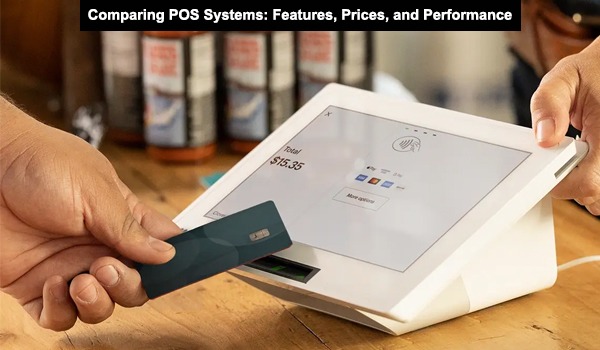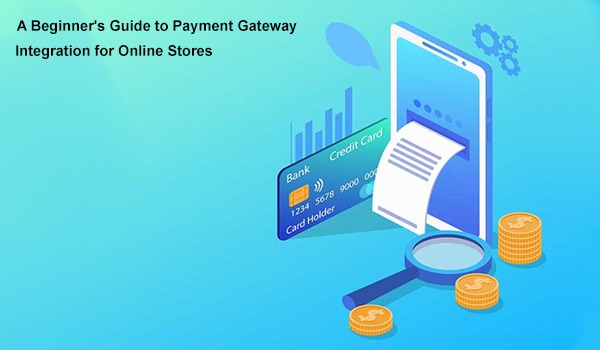
Introduction
Running a small business means juggling multiple tasks, and one area that demands efficiency is payment processing. Traditional point-of-sale systems, while effective, often come with hardware limitations, making them less practical for businesses operating remotely or online. This is where virtual terminals come in, offering a solution that simplifies how payments are handled without the need for physical card readers.
A virtual terminal allows businesses to process payments from almost any location using any device with an internet connection. This added flexibility helps businesses adapt to customer demands, streamline operations, and maintain a steady flow of revenue, all while ensuring security and convenience. Below, we explore the top five benefits of using a virtual terminal for small businesses.
Payment Flexibility for Any Business Type
One of the standout benefits of a virtual terminal is its ability to support a wide variety of payment types. Whether it’s credit and debit cards, ACH transfers, or recurring payments, a virtual terminal gives businesses the flexibility to accept payments from virtually any location. This is especially advantageous for service-based businesses, online retailers, and mobile vendors, who often don't rely on face-to-face transactions.
Moreover, virtual terminals are highly versatile. Payments can be processed over the phone, via email, or through online invoicing, making them suitable for different business models. This flexibility allows businesses to tap into new revenue streams that would otherwise be limited by traditional in-person payment methods.
Key advantages include:
- Multiple Payment Methods: Accepts credit/debit cards, ACH, and recurring payments.
- Remote Payment Processing: Process payments via phone, email, or invoicing.
- New Revenue Channels: Enables businesses to expand beyond in-person transactions.
- Ideal for Various Business Types: Perfect for service-based businesses, e-commerce stores, and mobile vendors.
Ease of Use and Accessibility
Another significant benefit of a virtual terminal is its simplicity. It can be accessed from any device with an internet connection—whether it’s a desktop computer, laptop, or tablet—making it easy for businesses to set up and start processing payments right away. There’s no need for specialized hardware or complicated software installations.
The user-friendly interfaces of most virtual terminals make it easy to navigate through transactions, send receipts, and manage customer details all in one centralized platform. This level of accessibility eliminates barriers for small business owners who may not have technical expertise, allowing them to focus more on their business and less on managing payment tools.
Enhanced Security for Payment Processing
When it comes to managing customer payments, security is critical, and virtual terminals are designed to meet this need. With advanced encryption technology and robust security protocols, they ensure sensitive payment information remains protected at all times. By adhering to Payment Card Industry Data Security Standards (PCI DSS), virtual terminals minimize the risk of data breaches and protect both the business and its customers from fraud.
In addition to encryption, many virtual terminals include built-in fraud detection tools. These systems can quickly flag suspicious transactions, helping businesses to identify and prevent potential threats. Regular updates to security features ensure your system stays current with the latest protections, providing consistent peace of mind.
Key security benefits include:
- PCI DSS Compliance: Adheres to industry regulations for safe and secure payment processing.
- Advanced Encryption: Protects sensitive customer and payment information.
- Fraud Detection Tools: Helps identify suspicious transactions and prevent fraud.
- Regular Security Updates: Ensures your business stays protected from evolving threats.
Cost-Effective Payment Solution
Traditional point-of-sale (POS) systems can involve substantial costs, including hardware, installation, and ongoing maintenance. Virtual terminals, on the other hand, eliminate many of these expenses, making them a more affordable option for small businesses. All that’s needed is an internet-connected device, which most businesses already have, to start accepting payments.
In addition to reducing upfront costs, virtual terminals often have lower transaction fees than traditional payment methods, especially for remote or manual card entries. This makes them a cost-effective solution for small businesses looking to optimize their budget without sacrificing quality service.
Improved Customer Experience
A seamless and convenient payment process is essential for maintaining customer satisfaction. Virtual terminals improve the overall customer experience by offering multiple payment options and faster transaction times. Customers can make payments quickly and securely, without the hassle of navigating complex processes.
For businesses that rely on phone orders, email invoices, or remote billing, virtual terminals provide a level of convenience that both customers and businesses appreciate. By making payment transactions more efficient, you can offer prompt, professional service, ensuring customers return for future business.
Streamlined Business Operations
Virtual terminals do more than just handle payments—they help streamline overall business operations. By offering centralized control, businesses can track sales, generate reports, process refunds, and manage customer information, all within one platform. This consolidation of tasks reduces administrative workload, allowing business owners to focus more on core activities that drive growth.
In addition, many virtual terminals integrate seamlessly with accounting and inventory management software. This integration minimizes manual entry errors, ensures accurate financial data, and simplifies record-keeping. The result is improved efficiency in daily operations, freeing up time for strategic planning and business development.
Key operational benefits include:
- Centralized Management: Handle transactions, refunds, and customer data from one platform.
- Sales Tracking & Reporting: Generate detailed sales reports for better business insights.
- Software Integration: Sync with accounting and inventory tools for streamlined processes.
- Reduced Errors: Minimizes manual entry and improves data accuracy.
Conclusion
A virtual terminal offers substantial benefits to small businesses, from the flexibility to accept various payment types to the simplicity of its user-friendly interface. With enhanced security features and the ability to process payments from any location, a virtual terminal not only improves the customer experience but also ensures peace of mind for business owners. The cost savings associated with eliminating expensive hardware and reducing transaction fees further add to its appeal, making it a highly practical solution for businesses of all sizes.
Moreover, the ability to streamline business operations—by centralizing sales tracking, integrating with accounting software, and reducing administrative tasks—makes the virtual terminal an invaluable tool for boosting efficiency. For small businesses looking to enhance their payment processing and stay competitive, adopting a virtual terminal is a strategic choice that can drive growth and support long-term success in an increasingly digital world.









